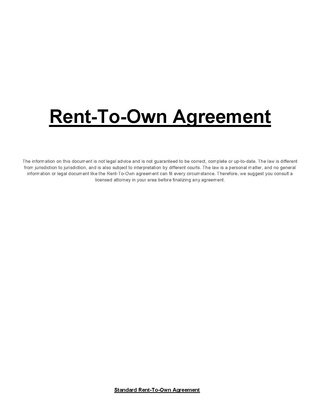Related Research Articles
In law, conveyancing is the transfer of legal title of real property from one person to another, or the granting of an encumbrance such as a mortgage or a lien. A typical conveyancing transaction has two major phases: the exchange of contracts and completion.
This aims to be a complete list of the articles on real estate.
Caveat emptor is Latin for "Let the buyer beware". It has become a proverb in English. Generally, caveat emptor is the contract law principle that controls the sale of real property after the date of closing, but may also apply to sales of other goods. The phrase caveat emptor and its use as a disclaimer of warranties arises from the fact that buyers typically have less information than the seller about the good or service they are purchasing. This quality of the situation is known as 'information asymmetry'. Defects in the good or service may be hidden from the buyer, and only known to the seller.
In common law, a deed is any legal instrument in writing which passes, affirms or confirms an interest, right, or property and that is signed, attested, delivered, and in some jurisdictions, sealed. It is commonly associated with transferring (conveyancing) title to property. The deed has a greater presumption of validity and is less rebuttable than an instrument signed by the party to the deed. A deed can be unilateral or bilateral. Deeds include conveyances, commissions, licenses, patents, diplomas, and conditionally powers of attorney if executed as deeds. The deed is the modern descendant of the medieval charter, and delivery is thought to symbolically replace the ancient ceremony of livery of seisin.
A real estate agent, referred to often as a Realtor and/or a real estate broker is a person who represents sellers or buyers of real estate or real property. While a broker may work independently, an agent usually works under a licensed broker to represent clients. Brokers and agents are licensed by the state to negotiate sales agreements and manage the documentation required for closing real estate transactions. Buyers and sellers are generally advised to consult a licensed real estate professional for a written definition of an individual state's laws of agency. Many states require written disclosures to be signed by all parties outlining the duties and obligations.
Title insurance is a form of indemnity insurance predominantly found in the United States and Canada which insures against financial loss from defects in title to real property and from the invalidity or unenforceability of mortgage loans. Unlike some land registration systems in countries outside the United States, US states' recorders of deeds generally do not guarantee indefeasible title to those recorded titles. Title insurance will defend against a lawsuit attacking the title or reimburse the insured for the actual monetary loss incurred up to the dollar amount of insurance provided by the policy.
Right of first refusal is a contractual right that gives its holder the option to enter a business transaction with the owner of something, according to specified terms, before the owner is entitled to enter into that transaction with a third party. A first refusal right must have at least three parties: the owner, the third party or buyer, and the option holder. In general, the owner must make the same offer to the option holder before making the offer to the buyer. The right of first refusal is similar in concept to a call option.
A real estate contract is a contract between parties for the purchase and sale, exchange, or other conveyance of real estate. The sale of land is governed by the laws and practices of the jurisdiction in which the land is located. Real estate called leasehold estate is actually a rental of real property such as an apartment, and leases cover such rentals since they typically do not result in recordable deeds. Freehold conveyances of real estate are covered by real estate contracts, including conveying fee simple title, life estates, remainder estates, and freehold easements. Real estate contracts are typically bilateral contracts and should have the legal requirements specified by contract law in general and should also be in writing to be enforceable.

A Lease-Purchase Contract, also known as a lease purchase agreement or rent-to-own agreement, allows consumers to obtain durable goods or rent-to-own real estate without entering into a standard credit contract. It is a shortened name for a lease with option to purchase contract. For real estate, a lease purchase contract combines elements of a traditional rental agreement with an exclusive right of first refusal option for later purchase of the home.

A standard form contract is a contract between two parties, where the terms and conditions of the contract are set by one of the parties, and the other party has little or no ability to negotiate more favorable terms and is thus placed in a "take it or leave it" position.
Nemo dat quod non habet, literally meaning "no one can give what they do not have", is a legal rule, sometimes called the nemo dat rule, that states that the purchase of a possession from someone who has no ownership right to it also denies the purchaser any ownership title. It is equivalent to the civil (continental) Nemo plus iuris ad alium transferre potest quam ipse habet rule, which means "one cannot transfer to another more rights than they have". The rule usually stays valid even if the purchaser does not know that the seller has no right to claim ownership of the object of the transaction ; however, in many cases, more than one innocent party is involved, making judgment difficult for courts and leading to numerous exceptions to the general rule that aim to give a degree of protection to bona fide purchasers and original owners. The possession of the good of title will be with the original owner.
Gazumping occurs when a seller accepts a verbal offer on the property from one potential buyer, but then accepts a higher offer from someone else. It can also refer to the seller raising the asking price or asking for more money at the last minute, after previously verbally agreeing to a lower one. In either case, the original buyer is left in a bad situation, and either has to offer a higher price or lose the purchase. The term gazumping is most commonly used in the United Kingdom and Ireland, although similar practices can be found in some other jurisdictions.

Offer and acceptance are generally recognised as essential requirements for the formation of a contract, and analysis of their operation is a traditional approach in contract law. The offer and acceptance formula, developed in the 19th century, identifies a moment of formation when the parties are of one mind. This classical approach to contract formation has been modified by developments in the law of estoppel, misleading conduct, misrepresentation, unjust enrichment, and power of acceptance.

Equitable conversion is a doctrine of the law of real property under which a purchaser of real property becomes the equitable owner of title to the property at the time he/she signs a contract binding him/her to purchase the land at a later date. The seller retains legal title of the property prior to the date of conveyance, but this land interest is considered personal property. The risk of loss is then transferred to the buyer – if a house on the property burns down after the contract has been signed, but before the deed is conveyed, the buyer will nevertheless have to pay the agreed-upon purchase price for the land unless the seller in possession or deemed in possession has failed to protect it. Such issues can and should be avoided by parties by stipulating in the contract who will bear the loss in such occurrences. The above rule varies by jurisdiction, but is the general rule.

Smith v Hughes (1871) LR 6 QB 597 is an English contract law case. In it, Blackburn J set out his classic statement of the objective interpretation of people's conduct when entering into a contract. The case regarded a mistake made by Mr. Hughes, a horse trainer, who bought a quantity of oats that were the same as a sample he had been shown. However, Hughes had misidentified the kind of oats: his horse could not eat them, and refused to pay for them. Smith, the oat supplier, sued for Hughes to complete the sale as agreed. The court sided with Smith, as he provided the oats Hughes agreed to buy. That Hughes made a mistake was his own fault, as he had not been misled by Smith. Since Smith had made no fault, there was no mutual mistake, and the sale contract was still valid.

Commercial property, also called commercial real estate, investment property or income property, is real estate intended to generate a profit, either from capital gains or rental income. Commercial property includes office buildings, medical centers, hotels, malls, retail stores, multifamily housing buildings, farm land, warehouses, and garages. In many states, residential property containing more than a certain number of units qualifies as commercial property for borrowing and tax purposes.
A real estate transaction is the process whereby rights in a unit of property is transferred between two or more parties, e.g. in case of conveyance one party being the seller(s) and the other being the buyer(s). It can often be quite complicated due to the complexity of the property rights being transferred, the amount of money being exchanged, and government regulations. Conventions and requirements also vary considerably among different countries of the world and among smaller legal entities (jurisdictions).
A set of heads of agreement, heads of terms, or letter of intent is a non-binding document outlining the main issues relevant to a tentative sale, partnership, or other agreement.
Seller financing is a loan provided by the seller of a property or business to the purchaser. When used in the context of residential real estate, it is also called "bond-for-title" or "owner financing." Usually, the purchaser will make some sort of down payment to the seller, and then make installment payments over a specified time, at an agreed-upon interest rate, until the loan is fully repaid. In layman's terms, this is when the seller in a transaction offers the buyer a loan rather than the buyer obtaining one from a bank. To a seller, this is an investment in which the return is guaranteed only by the buyer's credit-worthiness or ability and motivation to pay the mortgage. For a buyer it is often beneficial, because he/she may not be able to obtain a loan from a bank. In general, the loan is secured by the property being sold. In the event that the buyer defaults, the property is repossessed or foreclosed on exactly as it would be by a bank.
Wells v Devani [2019] UKSC 4 is an English contract law case, concerning agreements to agree.
References
- ↑ LaSalle, Jones Lang (2006-08-11). The Little Book of Real Estate Definitions. John Wiley & Sons. p. 29. ISBN 978-0-470-82211-1.
- ↑ "Conditional sale". Cornell Law Scholl | Legal Information Institute. Retrieved 2023-01-11.